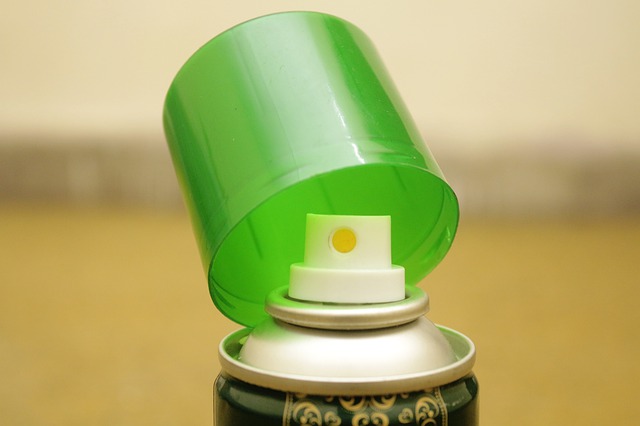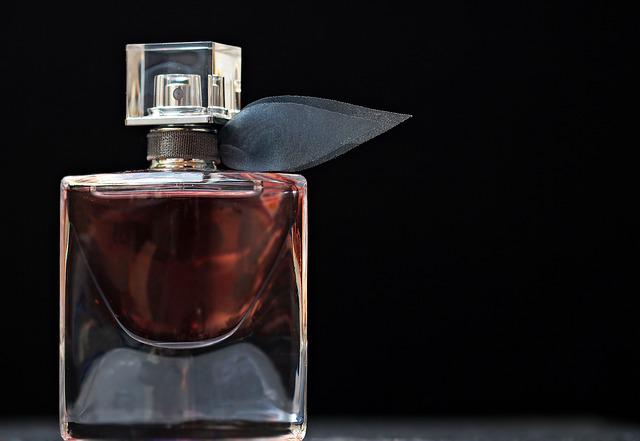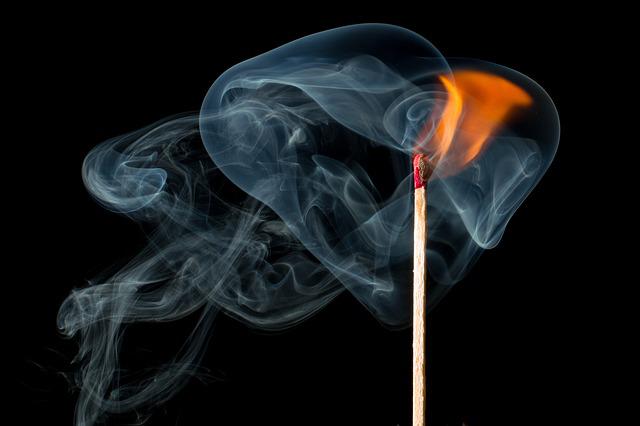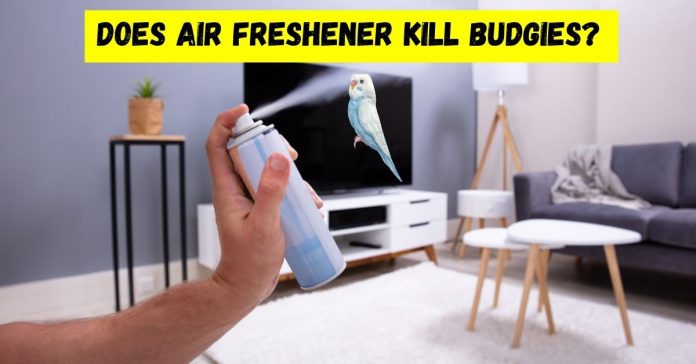I like to keep my home airy and aromatic. I have had the habit of using an essential oil diffuser. But, things changed when I got birds into my home. Several smells like perfumes, air fresheners, fumes, and vaporizers can have different impacts on birds (including budgies). If you have the habit of using any of them, you need to know certain things.
Does air freshener kill budgies? Fragrance-diffused essential oils and air fresheners can harm budgies. These fresheners can damage the lungs and respiratory system thereby killing budgies over time. So, if you are using an air freshener to keep your budgie healthy and safe, make sure it is an essential oil diffuser.
The respiratory systems of birds are totally different compared to humans. But, certain smells are still safe for birds. Let us find it out in this article. Keep reading!
Why air freshener is bad for budgies?

There are numerous reports of bird owners who have lost their birds after using scented candles or plug-in fresheners in the same room as their birds. The fumes from these products are known to be toxic to birds and can cause serious respiratory problems, which may eventually lead to death.
Budgies, like all birds, have very sensitive respiratory systems and are highly susceptible to any kind of air pollution. So it is important that you take steps to keep your bird’s environment as clean and healthy as possible. This means avoiding any kind of air freshener, scented candles, or anything else that might release harmful chemicals into the air.
In conclusion, while air fresheners are not directly lethal to budgies, they can cause serious respiratory problems which may eventually lead to death. It is therefore important to take steps to avoid using any products which might release harmful chemicals into the air.
Ever wondered about senses of a bird? Here’s an article – Do Parakeets Have Taste Buds?
What air fresheners are safe for birds?
Here are 5 air fresheners that are absolutely safe for birds.
- Beeswax candles
Beeswax candles are a natural and safe air freshener. They not only smell good but also help to purify the air.
2. Baking soda
Baking soda is a great, non-toxic way to freshen up your home and get rid of bad smells.
3. Lemon
Lemons are a natural air freshener and also help to get rid of bacteria.
4. Cedar blocks
Cedar blocks are a natural way to keep your home smelling fresh.
5. Herbs
Herbs are not only a great way to add flavor to your food, but also make your home smell great. Try using rosemary, lavender, or mint.
6. Apple cider air freshener
If you’re looking for a safe, natural air freshener that also smells delicious, try apple cider vinegar. It’s a great way to get rid of bad smells and add a touch of sweetness to your home.
7. Natural, unprocessed essential oils
Essential oils are a great way to naturally freshen your home and they have many health benefits as well. Just make sure you’re using unprocessed, natural oils and not synthetic fragrances.
There are many air fresheners on the market that claim to be safe for birds, but not all of them actually are. Some air fresheners contain harmful chemicals and toxins that can be dangerous for your bird. So, it’s important to be careful when choosing an air freshener and to only use those that are safe for birds.
Can perfume kill birds?

Chemical perfumes, containing strong scents, chemicals, and alcohol, can kill birds since these can block respiratory systems.
Some perfumes tend to lower the immunity system and cause extreme suffocation to birds. What happens at the end is a miserable collapse.
For your pet birds to lead long lives, it is a better idea to keep perfumes away from their locations. Perfume has the ability to dive deeper from the nose to the lungs and then spread to other parts of the body. Due to sensitive structures, birds like budgies and parakeets can have side effects. Just ensure that they are not directly exposed.
What smells kill birds?
Perfumes, paints, scented candles, aftershave, deodorants, paint, aerosols, and other air fresheners can kill birds. These products contain chemicals that are toxic to birds. Some of these chemicals include cresol, paradichlorobenzene, and volatile organic compounds (VOCs).
Birds can be poisoned by simply inhaling the fumes from these products, or they can ingest the chemicals when they eat contaminated food or drink water from a polluted source.
One specific product that is known to kill birds is mothball fumes.
Mothballs contain the chemical paradichlorobenzene, which is lethal to birds at high doses. When exposed to mothball fumes, birds can suffer from respiratory distress, seizures, and even death. According to The Parrot Society UK, this is a toxic fume that needs to be thoroughly eliminated from your bird’s place.
Birds can also be killed by eating foods that have been sprayed with pesticides. These chemicals can be toxic to birds and can cause liver damage, neurological problems, and even death. Pesticides can be found in many types of food, including fruits, vegetables, grains, and meat.
Some other products that can kill birds include:
- Leaded gasoline
- Oil spills
- Household cleaners
- Fabric softeners
- Laundry detergents
- Dryer sheets
- Bleach
- Chlorine
- Ammonia
- Antifreeze
- Paint thinners
- Polishes
- Wood stains
- Varnishes
All of these products contain chemicals that are toxic to birds and can cause serious health problems or death.
Also read – Should I play budgie sounds for my budgie?
What fumes are toxic to birds?
Teflon, lead, incense burners, cigarette smoke, aerosol, zinc, and mercury are all toxic to birds. Additionally, many cleaning products and aerosols contain chemicals that can be harmful to birds if inhaled. It’s important to be aware of the potential dangers around your home and take steps to protect your feathered friends.

Some birds are more sensitive to fumes than others. For example, parrots are particularly susceptible to the harmful effects of Teflon fumes. If you have a bird in your home, it’s important to be aware of the potential dangers and take steps to protect your feathered friend.
There are a number of ways to protect your bird from harmful fumes.
- One is to ensure that your bird is kept in a well-ventilated area. You can also use air filters to remove harmful fumes from the air.
- Additionally, it’s important to avoid using any products that contain toxic chemicals around your bird.
If you must use a product that contains a chemical that is harmful to birds, be sure to take steps to protect your bird from exposure, such as using a ventilation hood or keeping the bird in another room.
Symptoms of exposure to harmful fumes can include difficulty breathing, lethargy, and vomiting.
If your budgie is closing an eye due to fumes, here’s an article solving it – Why does my budgie close one eye?
Bird safe plug-in air freshener
Here are a few possibilities for bird-safe air fresheners.
- Citrus solution
- Baking soda solution
- Beeswax candles
- Potpourri
There are a variety of ways to make your home smell nice, without resorting to plug-in air fresheners. Baking soda is a great way to absorb odors, and you can make a simple solution.
- Mix 1/2 cup baking soda with 1 cup water.
- Place this in a small bowl and set it out in the room where you want to freshen the air.
You can also make your own potpourri by simmering water and dried herbs on the stove, or try beeswax candles for a natural, long-lasting fragrance.
Tyler Rugge, in his YouTube video, used simmer pots to fumigate the space and also make it more aromatic.
FAQ
Are air fresheners bad for parakeets?
Air fresheners are undoubtedly bad for parakeets as they have delicate respiratory systems that get choked upon inhalation.
So, if you have a parakeet at home, it is best to avoid air fresheners altogether. If you can’t help using them, try to keep the door and windows of the room closed while the freshener is working. Also, make sure to vacuum and dust regularly to get rid of any particles that might be harmful to your bird.
Can you spray air freshener around birds?
Air fresheners made out of baking soda, beeswax, or citrus can be sprayed around birds. However, synthetic perfumes and harsh chemicals in air fresheners should be avoided. Plain water can also be sprayed around birds to freshen the air.
It is important to keep a clean and healthy environment for your bird. regularly cleaning their living space and spraying it with a fresh-smelling air freshener will help to achieve this. There are many different types of air fresheners available on the market, so finding one that is safe for birds should not be a difficult task.
Is air wick safe for birds?
Air wick is moderately safe for birds as long as they don’t get in contact with the freshener. Airwick brand itself recommends avoiding it around birds.
If you must use Air Wick around birds, keep them in a well-ventilated area and away from the freshener. Some birds may have an allergic reaction to the ingredients in Air Wick. If your bird starts sneezing, has a runny nose or has watery eyes, discontinue using Air Wick and consult your veterinarian.
Is Febreze safe for budgies?
Febreze is unsafe for budgies as it contains zinc chloride which can ruin the respiratory system when they sniff. It does remove odor but also damages lungs rapidly.
The official website of Febreze also cites removing birds from the room before using the product. While it is safe for dogs and cats according to the company, it is unsafe for all kinds of birds.
It is best to err on the side of caution and keep your budgie well away from any Febreze product.
Is Glade safe for birds?
Glade contains a highly volatile chemical that thickens the scent but damages the air quality ideal for birds.
If you have already begun using Glade, remove it immediately. However, if you are fine with alternatives, here are two solutions you can try.
- Boil cinnamon and allow fumes to spread across the home.
- Use natural clove oil in the region.
To confirm if an air freshener is safe for a bird, the rule of thumb is to choose what is safe to eat. Clove is safe to eat and to inhale. But, Glade is not.
Is cologne bad for budgies?
The fragrance of cologne itself is sufficient to kill a budgie. This indicates the risk associated with cologne.
It is always best to refrain from using any type of perfume or cologne around your budgie. If you must use it, make sure to do so in an area where your bird cannot reach.
Can I use aerosols in my home if I have a bird?
Aerosols are unsafe and toxic to birds due to the propellant used. Be it fumes or sprays, strictly keep aerosols away.
If you must use an aerosol in your home, make sure to do so in a well-ventilated area and keep birds out of the room.
Will Vicks hurt my bird?
Vicks contains camphor, menthol, and eucalyptus oil that is safe for humans and not for birds.
Vicks is a remedy for you and me. It is not for your pet bird. The camphor in Vicks can be fatal to your bird. Menthol and eucalyptus oil can also cause respiratory problems and skin irritation. If you must use Vicks, do not let your bird inhale the vapor.
Can incense harm birds?
Incense definitely harms birds. It’s not something that should be used around them because the fumes and smoke can be very dangerous to their respiratory system.
Birds also have a heightened sense of smell, so the scent of incense can be really overwhelming for them and make it difficult for them to breathe. If you’re using incense in your home, be sure to keep your windows open and ventilate the room well to avoid harming any birds that might be nearby.
Can I wear perfume around my bird?
Wearing natural oils and applying citrus are safe but synthetic perfumes are unsafe to wear around birds.
It is a common misconception that synthetic perfumes are safe to wear around birds. In reality, any type of perfume can be harmful to your pet bird. The fumes from these scents can bother your bird’s respiratory system and cause long-term health problems. Stick to wearing natural oils or citrus when you’re near your pet bird – this will keep both you and your feathered friend happy and healthy!
Can you use a vaporizer around birds?
Any vapor or fume emitting from a chemical is unsafe and harmful to birds. As much as we recommend avoiding cigarette smokes and incense, vaporizer adds up to the list too.
The hot, electronic element emits an invisible vapor that is dangerous to birds. Our best advice? Don’t use a vaporizer around your bird at all.
Are humidifiers OK for birds?
Vet-recommended, bird-safe warm humidifiers are safe for birds but should be placed at a distance. Direct inhalation or direct exposure to fumes for long is not recommended.
Ultrasonic humidifiers are safe for birds and create a fine mist. Evaporative humidifiers can also be used but must have a bird-safe guard in place to prevent accidental ingestion of water. Room humidifiers are a great way to provide your bird with some relief, but be sure to follow all manufacturer instructions and recommendations.
Humidifiers offer many benefits for both people and their pets. They increase the humidity in a room, which can help relieve congestion, dryness, and other respiratory problems. Humidifiers also help to keep the airways moist, which is especially beneficial for pets with allergies or asthma.
Conclusion
When you have birds at home, remember to stay careful in using various fragrances, incense sticks, and air fresheners. You may do it by mistake but it can harm the bird. Sometimes, it can turn fatal too.
In my case, I have seen a couple of budgies finding extreme difficulty whenever exposed to mosquito coils. Know your bird’s sensitivity and stay careful.


